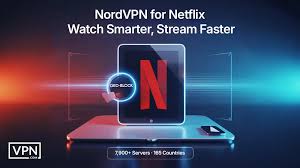New York’s tech scene is constantly evolving, driven by a combination of emerging technologies and entrepreneurial spirit. From AI and quantum computing to 5G and blockchain, these technologies are set to redefine how industries operate and how people live in the city. As these innovations continue to develop, New York will remain at the forefront of the global tech landscape, offering a glimpse into the future of technology and its limitless potential.
The Rise of Artificial Intelligence (AI):
Artificial intelligence (AI) is no longer a buzzword—it is a reality shaping industries across the globe. In New York, AI is making significant inroads in sectors like finance, healthcare, and media. AI’s ability to analyze vast amounts of data, predict trends, and optimize decision-making processes is invaluable to companies.
In finance, AI-driven algorithms are helping hedge funds and financial institutions make data-driven investment decisions. High-frequency trading, fraud detection, and risk management are all benefiting from AI’s real-time analytics. The healthcare sector is also leveraging AI for diagnostics, patient care, and even drug discovery. AI-powered platforms can analyze medical images, patient records, and genetic data to assist doctors in making accurate diagnoses faster than ever before. In media, AI is being used to automate content creation, personalize user experiences, and enhance video editing.
With AI continuing to evolve, New York’s tech ecosystem is set to benefit immensely. Startups, tech giants, and research institutions are all contributing to the city’s leadership in AI innovation.
Quantum Computing:
The Next Frontier:
Quantum computing is another technology set to make waves in New York’s tech scene. Unlike traditional computers, quantum computers use quantum bits, or qubits, which can perform multiple calculations simultaneously. This has the potential to solve complex problems that are currently beyond the capabilities of classical computers.
In New York, quantum computing is gaining momentum, with companies like IBM leading the charge. IBM’s Quantum Computing Center in Yorktown Heights is one of the world’s leading research facilities for quantum technologies. Financial institutions are particularly excited about quantum computing’s potential to revolutionize encryption, portfolio optimization, and risk analysis.
Beyond finance, quantum computing could impact industries like pharmaceuticals, energy, and logistics. For example, it could accelerate drug discovery by simulating molecular structures in real-time. In logistics, quantum algorithms could optimize supply chains and route planning more efficiently than ever before. New York’s proximity to top academic institutions and research labs makes it a prime location for quantum computing advancements.
Blockchain and Decentralized Finance (DeFi):
Blockchain technology, the foundation of cryptocurrencies like Bitcoin and Ethereum, is rapidly gaining acceptance in New York. While cryptocurrencies themselves have faced regulatory scrutiny, the underlying blockchain technology is being embraced for its transparency, security, and decentralization.
In the finance sector, blockchain is powering decentralized finance (DeFi) platforms that enable peer-to-peer lending, borrowing, and trading without traditional intermediaries like banks. New York-based blockchain startups are developing solutions for everything from cross-border payments to secure digital identities. Moreover, Wall Street’s interest in blockchain is growing, with institutions exploring its potential to streamline operations and reduce costs.
Real estate is another industry where blockchain is making an impact. Blockchain’s ability to create smart contracts and immutable property records is transforming how real estate transactions are conducted. With companies such as Propy and RealBlocks leading the way, New York’s real estate market is beginning to embrace the potential of blockchain to reduce paperwork, cut down transaction times, and enhance security.
The Growth of 5G Networks:
The introduction of 5G networks in New York is transforming how businesses and consumers interact with technology. 5G offers significantly faster data speeds, lower latency, and higher capacity compared to previous generations of wireless technology. As the infrastructure for 5G expands across the city, it will unlock new possibilities for emerging technologies.
One key area where 5G is expected to make an impact is the Internet of Things (IoT). With its ability to support a massive number of connected devices simultaneously, 5G will enable the development of smart cities, autonomous vehicles, and more advanced IoT applications. In New York, this could mean everything from intelligent traffic management systems to enhanced public safety through connected surveillance systems.
The entertainment and media industries are also poised to benefit from 5G. With faster download speeds and improved streaming capabilities, 5G will enhance virtual reality (VR) and augmented reality (AR) experiences. This is particularly relevant for New York’s advertising and creative industries, which are always looking for innovative ways to engage consumers.
Cybersecurity Advancements in a Digital World:
As New York embraces emerging technologies, the need for advanced cybersecurity measures is growing. The city’s status as a global financial hub makes it a prime target for cyberattacks. To counter this, New York-based companies are investing heavily in cutting-edge cybersecurity technologies.
AI is playing a major role in the evolution of cybersecurity. Machine learning algorithms can detect anomalies and potential threats in real-time, allowing companies to respond to attacks more quickly. Predictive analytics is being used to anticipate vulnerabilities before they are exploited. Furthermore, blockchain technology is being explored for secure data sharing and identity management.
New York is also home to several cybersecurity startups that are developing innovative solutions to protect digital assets. As cyber threats become more sophisticated, the demand for skilled cybersecurity professionals and advanced security tools will continue to rise.
The Future of Autonomous Transportation:
Autonomous vehicles (AVs) have been making headlines for years, and New York is no exception. Although fully autonomous vehicles are not yet a common sight on New York’s streets, the groundwork is being laid for their eventual integration. Companies like Waymo and Tesla are developing AV technology, while local authorities are working on creating regulations that will allow for the safe deployment of these vehicles.
The introduction of autonomous vehicles has the potential to transform urban transportation in New York. AVs could reduce traffic congestion, lower emissions, and make transportation more accessible to people with disabilities. Additionally, delivery and logistics companies are exploring the use of AVs to streamline last-mile deliveries, which could have a significant impact on e-commerce and supply chains in the city.
Public transportation is another area where autonomous technologies could make a difference. Autonomous buses and shuttles are already being tested in other cities, and New York could follow suit as the technology matures. With the city’s reliance on mass transit, autonomous solutions could help improve efficiency and reduce operational costs.
Green Technology and Sustainability:
As one of the largest and most densely populated cities in the world, New York faces significant environmental challenges. To address these issues, the city is increasingly looking to green technologies and sustainable solutions. Emerging technologies in energy efficiency, renewable energy, and waste management are being implemented across the city to create a more sustainable urban environment.
Renewable energy startups are developing innovative ways to harness solar, wind, and other renewable energy sources to power the city. Energy storage technologies, such as advanced batteries, are also being deployed to ensure that renewable energy is available when needed. In addition, smart building technologies are helping property owners reduce energy consumption by optimizing heating, cooling, and lighting systems.
The push for sustainability is also evident in New York’s transportation sector. Electric vehicles (EVs) are becoming more common, and the city is expanding its EV charging infrastructure. This shift is part of a broader effort to reduce greenhouse gas emissions and promote cleaner air in the city.
Conclusion:
New York City has long been a hub for innovation, blending finance, media, and technology into one thriving ecosystem. From Wall Street to Silicon Alley, the city fosters creativity and entrepreneurship. Today, emerging technologies are reshaping New York’s tech landscape. These advancements promise to redefine industries, enhance efficiencies, and create new opportunities. As we look to the future, several trends stand out in the city’s bustling tech scene. Let’s explore these technologies and how they are set to transform the Big Apple.



































